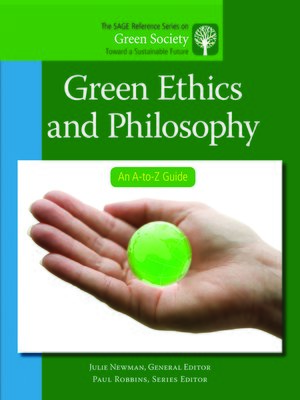Green Ethics and Philosophy
ebook ∣ An A-to-Z Guide · The SAGE Reference Series on Green Society: Toward a Sustainable Future-Series Editor: Paul Robbins
By Julie Newman

Sign up to save your library
With an OverDrive account, you can save your favorite libraries for at-a-glance information about availability. Find out more about OverDrive accounts.
Find this title in Libby, the library reading app by OverDrive.



Search for a digital library with this title
Title found at these libraries:
| Library Name | Distance |
|---|---|
| Loading... |
Green Ethics and Philosophy: An A-to-Z Guide covers the moral relationship between humans and their natural environment, specifically targeting the contemporary green movement. Since the 1960s, green ethics and philosophies have helped give birth to the civil rights, feminist, and gay rights movements, as well as contemporary environmentalism.
With a primary focus on green environmental ethics, this reference work, available in both print and electronic formats, presents approximately 150 signed entries organized A-to-Z, traversing a wide range of curricular disciplines, including philosophy, psychology, business, economics, religion, and political science. A rich blend of topics, from the Hannover Principle to green eco-feminism, responsible eco-tourism, corporate values and sustainability, and more, are explained by university professors and scholars, all contributing to an outstanding reference mainly for academic and public libraries. Vivid photographs, searchable hyperlinks, numerous cross references, an extensive resource guide, and a clear, accessible writing style make the Green Society volumes ideal for classroom use as well as for research.
With a primary focus on green environmental ethics, this reference work, available in both print and electronic formats, presents approximately 150 signed entries organized A-to-Z, traversing a wide range of curricular disciplines, including philosophy, psychology, business, economics, religion, and political science. A rich blend of topics, from the Hannover Principle to green eco-feminism, responsible eco-tourism, corporate values and sustainability, and more, are explained by university professors and scholars, all contributing to an outstanding reference mainly for academic and public libraries. Vivid photographs, searchable hyperlinks, numerous cross references, an extensive resource guide, and a clear, accessible writing style make the Green Society volumes ideal for classroom use as well as for research.







